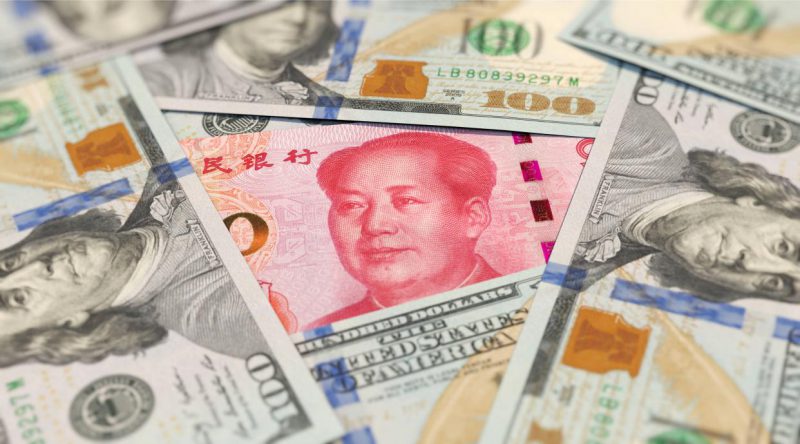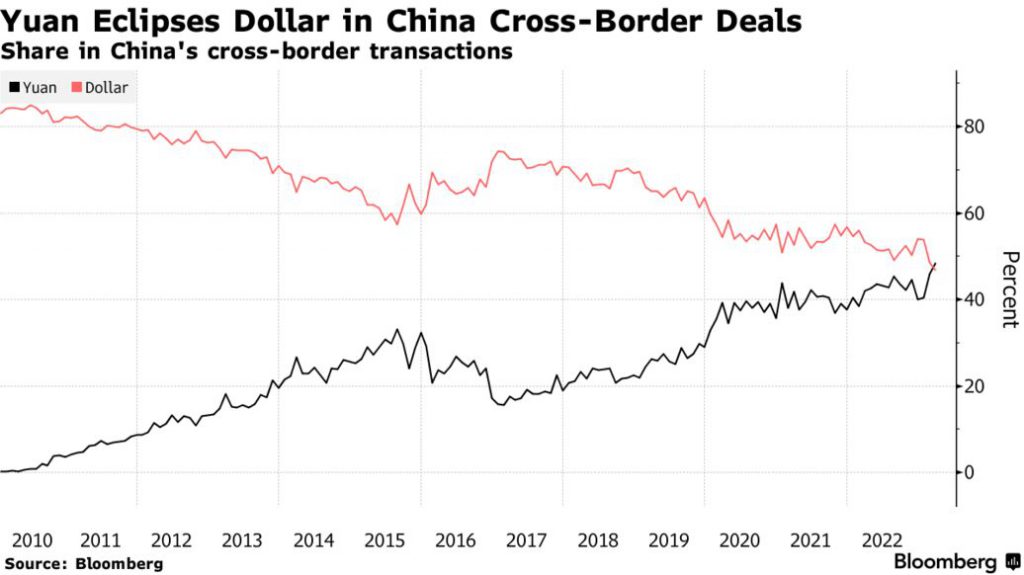As per an analysis by Bloomberg Intelligence [BI] using statistics from the State Administration of Foreign Exchange, the local currency’s proportion of China’s cross-border payments and receipts increased to a record high of 48% at the end of March from almost zero at 2010.
The results indicated that throughout the same time period, the dollar’s share decreased from 83% to 47%. The percentage is, however, determined based on the volume of all transactions. This includes trading of securities through the connections between the financial markets of Hong Kong and the People’s Republic of China. Elaborating on the same, Stephen Chiu, chief Asia foreign-exchange and rates strategist at BI said,
“The rise in yuan usage could be a natural consequence of China opening up its capital account, with rising inflows for China bonds and outflows for Hong Kong stocks.”
It is likely that this trend would persist. In a note released on April 25, in order to promote international commerce, the State Council stated that China will further broaden the use of the Chinese Yuan for cross-border transactions.
Is the Chinese Yuan a long way from disrupting the dollar’s dominance?
While the above development is certainly a step against bringing down the dollar, it is quite dainty. Chris Leung, an economist at DBS Bank notes,
“Yuan internationalization is speeding up as other countries seek an alternative payment currency to diversify risks and as the credibility of the Federal Reserve is not as good as before. But at the same time, we are still talking about a long way from dollar dominance, and the yuan’s share in global payment might be forever small.”
According to SWIFT, the Chinese Yuan’s share of international payments was essentially unchanged in March at 2.3%. This news comes despite the fact that the Chinese yuan is weakening against the U.S. Dollar. The China Foreign Exchange Trade System reported that on April 26, the central parity rate of the Chinese yuan, or renminbi, fell 390 pips to 6.9237 against the dollar. More recently, former Treasury Secretary Larry Summers dismissed notions of the Chinese yuan being a threat to the dollar. Labeling Chinese markets unreliable, Summers said,
“There has never been a country where there was a strong desire to move as much capital out of the country as we’re seeing in China right now, albeit blocked by controls. Is that really going to be a place where people are going to decide they want to hold reserves on a massive scale?”






